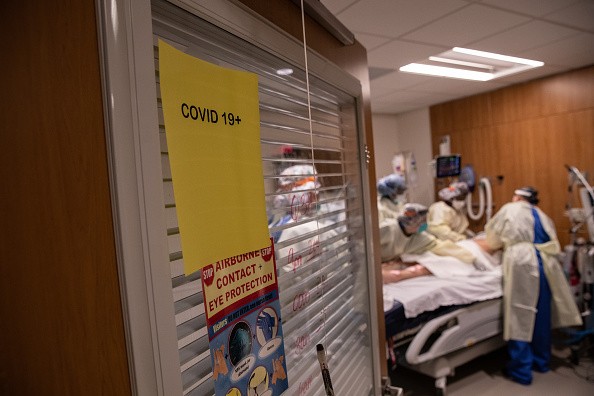Scientists discovered that COVID-19 can spread more than two meters in a poorly-ventilated room. Because of the alarming finding, the researchers developed a new tool that can calculate the transmission risk of the novel coronavirus in places with poor ventilation.

According to Science Daily's latest report, the medical researchers explained that in poorly-ventilated places, people are more likely to get infected when they are just talking than through coughing.
The study's results were published in the journal Proceedings of the Royal Society A. The new research also revealed that social distancing has no bearing inside a poorly-ventilated place since people inhale the same air.
Right now, the researchers are working on a new tool that could help the public know COVID-19's transmission risk in a room with a poor or no ventilation system.
The new COVID-19 tool
Live Mint's reported that the University of Cambridge and Imperial College London's researchers were the ones who developed the new tool. They said that the vast majority of coronavirus cases are spread through the indoor transmission.

Read also: Pfizer COVID-19 Vaccine Death Risks: 29 Died in Norway, Database Reportedly Shows 55 US Deaths
People can get infected via droplets or aerosols. Although the experts said that social distancing can't decrease infection in poorly-ventilated rooms, they said that wearing masks can somehow reduce the infections. Why? Because they can slow the breath's momentum and filter a portion of the exhaled droplets.
The team also used mathematical models to reveal how the SARS-CoV-2 virus spreads in different indoor spaces. They based the models on the place's occupancy, size, ventilation, and whether people are wearing masks.
How the new tool works
The new tool is called Airborne.cam. It is an open-source tool that helps users understand how safety measures, such as ventilation, affect the risk of indoor transmission. The innovation can also calculate the risk changes over time.
Anyone can use the new COVID-19 tool since it is offered for free. Airborne.cam can be used by the people who are managing workplaces, shops, classrooms, and other public places.
"The tool can help people use fluid mechanics to make better choices, and adapt their day-to-day activities and surroundings in order to suppress risk, both for themselves and for others," said Savvas Gkantonas, the study's co-author, via Live Mint.
For more news updates about newly developed technologies that can fight the ongoing COVID-19 pandemic, always keep your tabs open here at TechTimes.
Related Article: Apple Watch Feature Detects COVID-19 Symptoms Before Patients Test Positive, Revealing Significant Changes
This article is owned by TechTimes.
Written by: Giuliano de Leon.
ⓒ 2026 TECHTIMES.com All rights reserved. Do not reproduce without permission.




